Unlocking Optimal Equine Health: The Importance of Key Mineral Ratios

How Do Mineral Ratios Affect My Horse?
Proper mineral balance is crucial for the health and performance of horses. Each mineral is essential in facilitating your horse's health. Not only does the body require adequate amounts of every mineral, but the ratios of one mineral to another also affect how the body can utilize them. Understanding these key mineral ratios helps ensure your horse receives the correct proportions of nutrients.
Key Minerals for Horses
Calcium (Ca)
- Bone Development and Maintenance: Essential for strong bones and teeth
- Muscle Function: Critical for muscle contractions
- Nerve Function: Important for nerve signal transmission
- Blood Clotting: Necessary for the blood coagulation process
- Enzyme Activation: Involved in various enzymatic reactions
Recommended Daily Value: Maintenance: 0.20-0.40% of the diet; Growing horses and lactating mares: 0.80-1.00% of the diet (NRC, 2007).
Phosphorus (P)
- Bone Structure: Integral component of bones and teeth
- Energy Metabolism: Crucial for ATP production
- Cell Membrane Integrity: A key element in phospholipids
- Genetic Material: Part of DNA and RNA structures
Recommended Daily Value: Maintenance: 0.15-0.30% of the diet; Growing horses and lactating mares: 0.60-0.70% of the diet (NRC, 2007).
Sodium (Na)
- Fluid Balance: Maintains proper hydration and electrolyte balance
- Nerve Function: Essential for transmitting nerve impulses
- Muscle Contractions: Important for muscle function
- Blood Pressure Regulation: Helps regulate blood pressure
- Acid-Base Balance: Contributes to maintaining pH balance in the body
Recommended Daily Value: Maintenance: 0.10-0.20% of the diet; Performance horses: 0.20-0.30% of the diet (NRC, 2007).
Potassium (K)
- Cellular Function: Vital for cellular processes and enzyme activities
- Nerve Signal Transmission: Key for proper nerve function
- Muscle Contractions: Crucial for muscle function, especially cardiac muscles
- Electrolyte Balance: Helps maintain fluid and electrolyte balance
- Acid-Base Balance: Important for maintaining the body's pH levels
Recommended Daily Value: Maintenance: 1 mg/kg of diet; Growing horses and lactating mares: 2-3 mg/kg of the diet (NRC, 2007).
Zinc (Zn)
- Immune Function: Supports a healthy immune system
- Protein Synthesis: Involved in DNA and protein synthesis
- Cell Division: Essential for cell growth and division
- Skin and Coat Health: Important for maintaining healthy skin and coat
- Wound Healing: Promotes faster healing of wounds
Recommended Daily Value: Maintenance: 400 mg/day; Growing horses: 500-600 mg/day (NRC, 2007).
Copper (Cu)
- Hemoglobin Formation: Necessary for the production of red blood cells
- Connective Tissue Formation: Supports the development and maintenance of connective tissues
- Immune Function: Plays a role in maintaining immune health
- Iron Metabolism: Aids in the proper utilization of iron
- Antioxidant Activity: Acts as a cofactor for antioxidant enzymes
Recommended Daily Value: Maintenance: 100 mg/day; Growing horses: 200-250 mg/day (NRC, 2007).
Magnesium (Mg)
- Muscle Function: Essential for muscle relaxation and preventing cramps
- Energy Production: Involved in ATP synthesis and energy metabolism
- Bone Health: Important for bone structure and strength
- Nerve Function: Crucial for nerve signal transmission
- Enzyme Reactions: Acts as a cofactor for numerous enzymatic reactions
Recommended Daily Value: Maintenance: 0.10-0.15% of the diet; Growing horses: 0.10-0.15% of the diet (NRC, 2007).
Iron (Fe)
- Oxygen Transport: Fundamental component of hemoglobin and myoglobin
- Energy Production: Important for cellular respiration and energy metabolism
- Immune Function: Supports immune system health
- Cognitive Function: Plays a role in brain function and development
- Detoxification: Involved in detoxification processes in the liver
Recommended Daily Value: Maintenance: 400-500 mg/day; Growing horses: 500-700 mg/day (NRC, 2007).
Key Mineral Ratios
Mineral ratios refer to the specific proportions of different minerals relative to each other in a horse's diet. These ratios are crucial for ensuring optimal absorption and utilization of nutrients.
Calcium/Phosphorus (Ca/P)
The ideal Ca/P ratio is typically 1.5:1 to 3:1 in young, growing horses and 1:1 to 6:1 in mature horses.
Importance: An imbalance, particularly excess phosphorus, can lead to poor bone development and other skeletal issues. Calcium is needed in greater amounts to neutralize the potential adverse effects of phosphorus.
Sodium/Potassium (Na/K)
The recommended Na/K ratio is around 1:3 to 1:5.
Importance: Maintaining this ratio helps prevent dehydration, muscle weakness, and poor performance. Too much potassium with insufficient sodium can lead to metabolic disturbances and fatigue.
Calcium/Phosphorus (Ca/P)
The ideal Ca/P ratio is typically 1.5:1 to 3:1 in young, growing horses and 1:1 to 6:1 in mature horses.
Importance: An imbalance, particularly excess phosphorus, can lead to poor bone development and other skeletal issues. Calcium is needed in larger amounts to neutralize the potential adverse effects of phosphorus.
Sodium/Potassium (Na/K)
The recommended Na/K ratio is around 1:3 to 1:5.
Importance: Maintaining this ratio helps prevent dehydration, muscle weakness, and poor performance. Too much potassium with insufficient sodium can lead to metabolic disturbances and fatigue.
Calcium/Potassium (Ca/K)
The ideal Ca/K ratio varies but is generally between 1:1.5 and 1:2.
Importance: Proper balance ensures that muscles work correctly and helps prevent disorders such as muscle cramps and weakness. An imbalance can interfere with calcium absorption and utilization.
Zinc/Copper (Zn/Cu)
The recommended Zn/Cu ratio is 3:1 to 4:1.
Importance: Maintaining this ratio helps prevent deficiencies and supports healthy growth, immune function, and bone development. An imbalance can lead to poor coat quality, anemia, and other health issues.
Sodium/Magnesium (Na/Mg)
The Na/Mg ratio is less strictly defined but typically falls around 1:2 to 1:3.
Importance: Proper balance supports muscle relaxation and helps prevent muscle twitching and nervousness. An imbalance can result in poor muscle function and metabolic problems.
Calcium/Magnesium (Ca/Mg)
The ideal Ca/Mg ratio is generally about 2:1.
Importance: This ratio ensures optimal muscle function and bone health. An imbalance, particularly excess calcium relative to magnesium, can cause muscle spasms and poor cardiovascular health.
Iron/Copper (Fe/Cu)
The recommended Fe/Cu ratio is around 4:1.
Importance: Maintaining this ratio supports proper red blood cell function and prevents anemia. An imbalance can lead to poor oxygen transport and connective tissue disorders.
Frequently Asked Questions
What are the signs of a mineral imbalance in horses?
It is essential to be vigilant for signs of mineral imbalance in your horses. These signs may manifest as poor coat condition, weak or brittle hooves, muscle weakness, poor performance, and susceptibility toinfections. If you notice these symptoms, your proactive approach in consulting a veterinarian to assess your horse's mineral levels is commendable.
Should I balance my horse's mineral levels through supplementation?
When it comes to balancing minerals with supplements, the role of equine nutrition experts cannot be overstated. Their knowledge and experience are crucial, especially if your horse's diet lacks specific nutrients. They can help tailor the right supplementation program to ensure your horse's mineral needs are met, providing you with the necessary guidance and support.
How do I know my horse is getting the required levels of nutrients?
Hay testing is an important step in understanding your horse's nutritional intake. By analyzing core samples, you can get a baseline of the nutrition provided by the hay your horse eats. This information, when used in conjunction with the guidance of a nutritionist or veterinarian, can help you build a supplementation program to fill in the gaps. For a comprehensive understanding of your horse's nutritional status, testing their mineral levels can be helpful; sometimes, absorption issues require additional supplementation. You can have your veterinarian run blood tests to determine the levels of minerals in your horse's bloodstream. Hair Mineral Analysis is another test that can help complete the picture; this will get you the tissue levels present, and the body will pull from the tissue to keep healthy blood levels.
Conclusion
Maintaining the correct balance of these minerals is essential for horses' overall health and performance. Imbalances can lead to various health issues, from poor bone development to metabolic disorders. By understanding and managing these key mineral ratios, horse owners can ensure their animals receive the optimal nutrition for health and vitality. Always consult a veterinarian or equine nutritionist to tailor mineral intake to your horse's needs.
Want to learn about your horse's mineral ratios? Order a Hair Mineral Analysis kit today!
Links for further reading:
References:
- National Research Council (NRC). (2007). Nutrient Requirements of Horses. Washington, DC: The National Academies Press.





Leave a comment